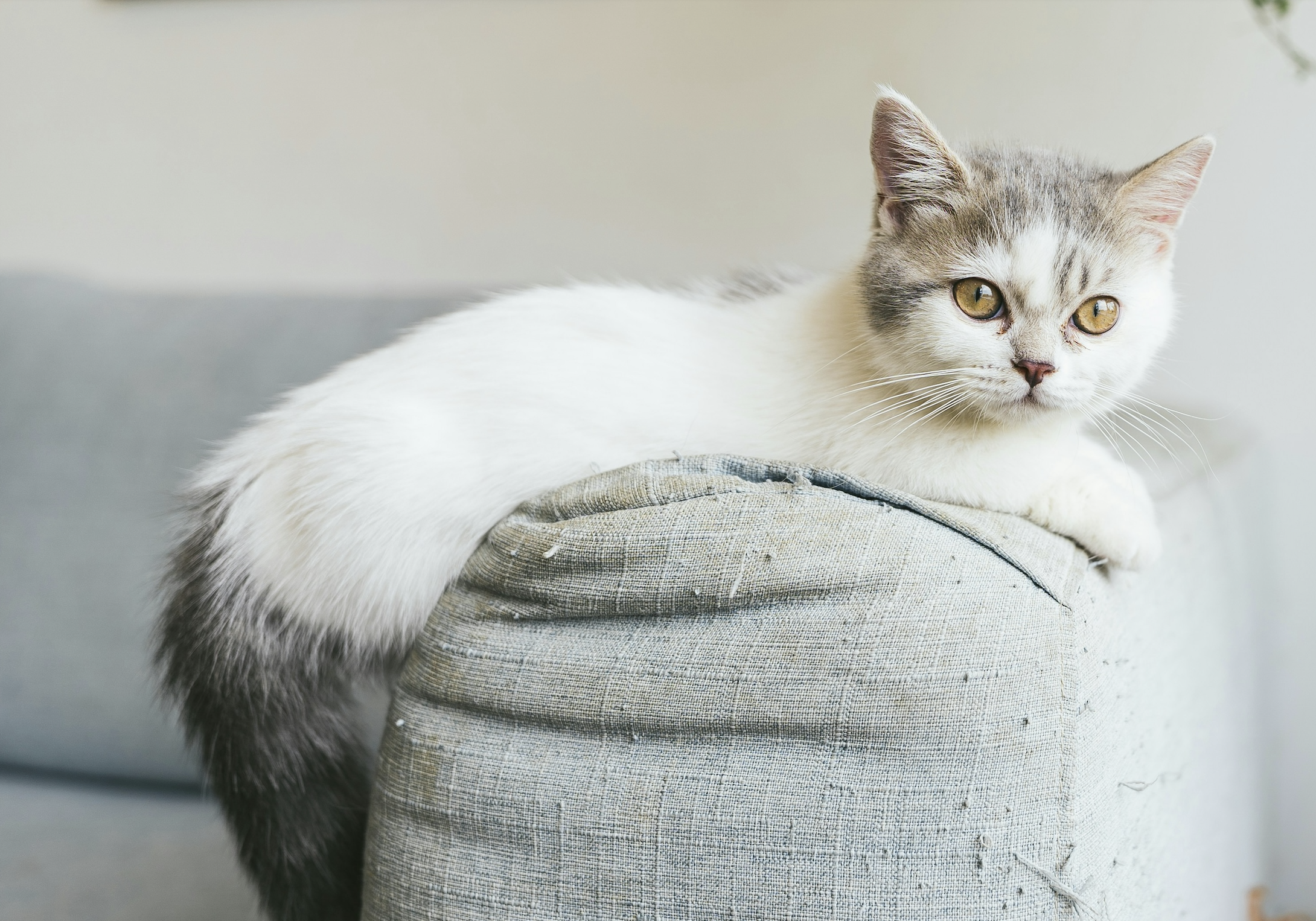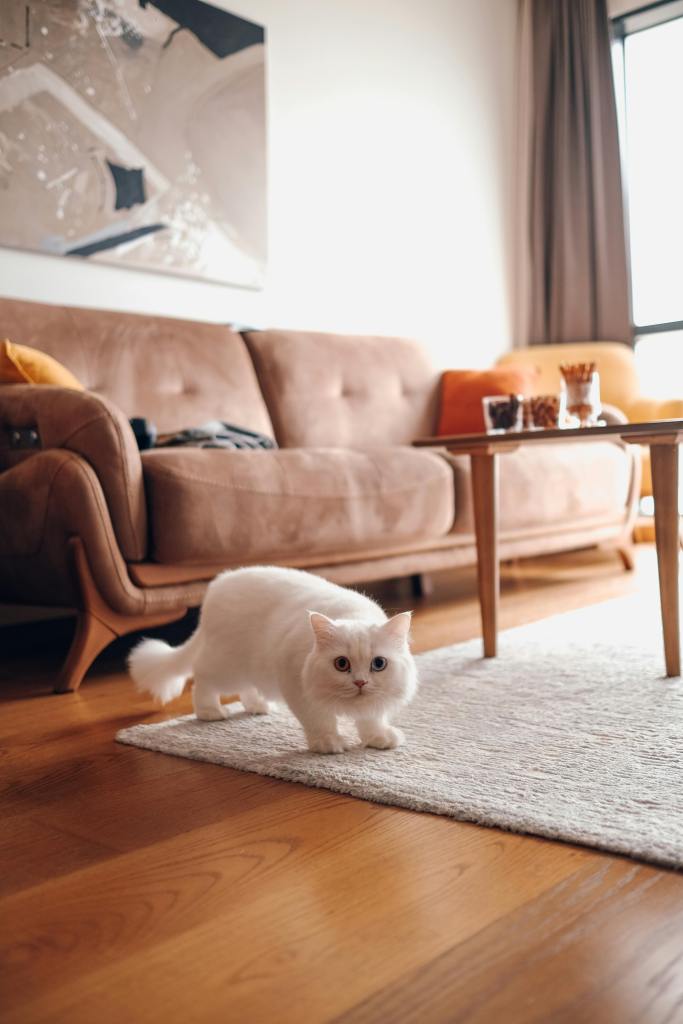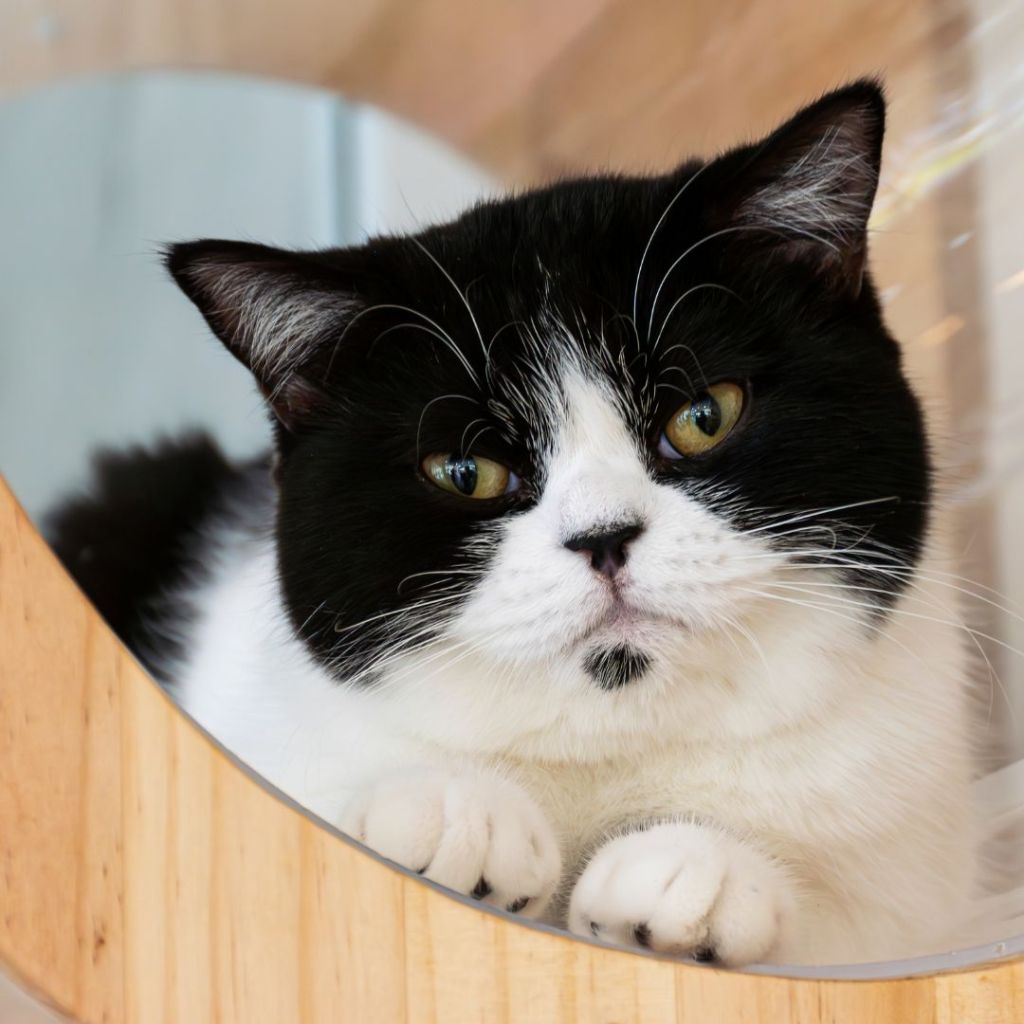
Are Munchkin Cats Quirky or Just Weird? Must-Know Facts About This Breed
4 Apr 2024.
The munchkin cat is certainly one of the most popular cat breeds in the world. Their short legs have earned them immense internet fame and the Munchkin cat is a breed that many feline fans adore. However, the unnatural mutation has also caused animal rights activists to label Munchkin breeding as unethical. Are you curious to learn more about these fascinating felines? Cat in a Flat explores who the Munchkin kitty is and whether it’s ethical or not to own one.
Table of contents
What makes Munchkin cats special?
What’s so special about the Munchkin cat? These kitties are immediately recognizable because of their very short legs. This is considered the main trademark of the breed, but Munchkins also have other notable features. These include disproportionately large ears with rounded tips, and large eyes set wide apart on the face. However, a Munchkin cat’s leg length has no impact on the size of their other body parts. For example, they will usually sport the same long tail that any other type of cat might have. Basically, Munchkins have regular-sized bodies atop shorter than usual legs!
Here are a few other features of this feline breed:
- Medium to large in size
- Muscular build and strong legs
- Weigh between 2 – 3.5 kilograms (females) and 3 – 4 kilograms (males)
- Munchkin cats can have coats that range from short to long-haired and come in a variety of coat colours and patterns.
- These furry friends are not recognised as a hypoallergenic cat breed, so they’re not suitable for anyone who is prone to allergies.

Where do Munchkin cats come from?
Unlike the Norwegian Forest Cat, which developed naturally due to environmental factors, the Munchkin is a product of human intervention. The breed originated in the USA in 1983, when a kitten with a short leg mutation was spotted in a litter of strays. Although short-legged cats can happen occasionally in nature, this was the first time a kitten with this mutation was kept and bred to recreate the feature that we recognise in all Munchkins today.
How to look after a Munchkin kitty
If you are considering bringing a Munchkin fur friend into your life, the good news is that they require very similar care to most other cats.
Like with any other feline, Mr Whiskers will need all the basics of cat care:
- Access to multiple sources of fresh water
- A mix of nutritious wet and dry food diet
- Grooming once a week (for short-haired cats) or multiple times a week (for long-haired cats). Frequent grooming will help keep your kitty’s coat healthy and mat-free.
- Access to multiple litter boxes that you clean daily.
- Regular vet check-ups
- Daily engagement with their humans through playtime and quality cuddle time
What are the cons of owning a Munchkin kitty?
There are a few cons to take note of before you get a Munchkin cat:
Because of their genetic mutation, these kitties are prone to a range of health issues which could be painful for your cat and potentially expensive for you:
- Hyperthyroidism
- Cat arthritis
- Spinal problems (such as a curved spine)
- Joint problems resulting from difficulty exercising
You will need to design your home around your Munchkin’s inability to jump:
- Choose litter trays with low sides your kitty can easily hop over.
- Scratching pads that lie flat on the ground.
- Cosy beds that are on the ground or have ramps for easy, safe access.
- Due to their physical limitations, these fur friends cannot live in a home with babies, young children, or other boisterous pets.
Munchkin cats are also solely indoor cats. While most domesticated cat breeds can easily revert to their wilder instincts, Munchkins cannot survive in the wild and should never be allowed outside. If you can’t commit to providing your kitty with a healthy and engaging indoor lifestyle, you should reconsider bringing this type of feline into your life.
Your kitty may require more care than some other cats. Hence, when you go away you may need to book a cat sitter for multiple daily visits. It’s also important that your cat sitter is familiar with Munchkin cats and comfortable looking after their needs.

Should I get a Munchkin cat?
Should you bring a Munchkin cat into your home? Only you can decide if this is the right feline for you and your lifestyle. However, take note that, because they are so heavily bred and have a multitude of health issues, Munchkin cats are considered a controversial breed. In fact, there are very few cat registry associations that are willing to recognise them at all. Due to the limiting nature of their short legs, and the health problems that arise, breeders are divided on whether it is ethical to continue to intentionally produce this feature.
So, although they are certainly very cute and quirky, Munchkins are one of the least ethical feline breeds that exist. If you can, consider adopting a kitty first as opposed to buying. Around 150,000 cats enter shelters each year in the UK—ranging from kittens to senior cats, and from breeds to ‘mutts’. With so many options, you’re sure to find a fur friend that suits your personality and lifestyle AND you’ll be giving a feline in need a good home!
Want to know more about cats? In our blog, we answer your most pressing feline questions and offer great tips for first-time cat parents!
- #catinaflat
- munchkin cat
- munchkin cat breed
- munchkin cat care


